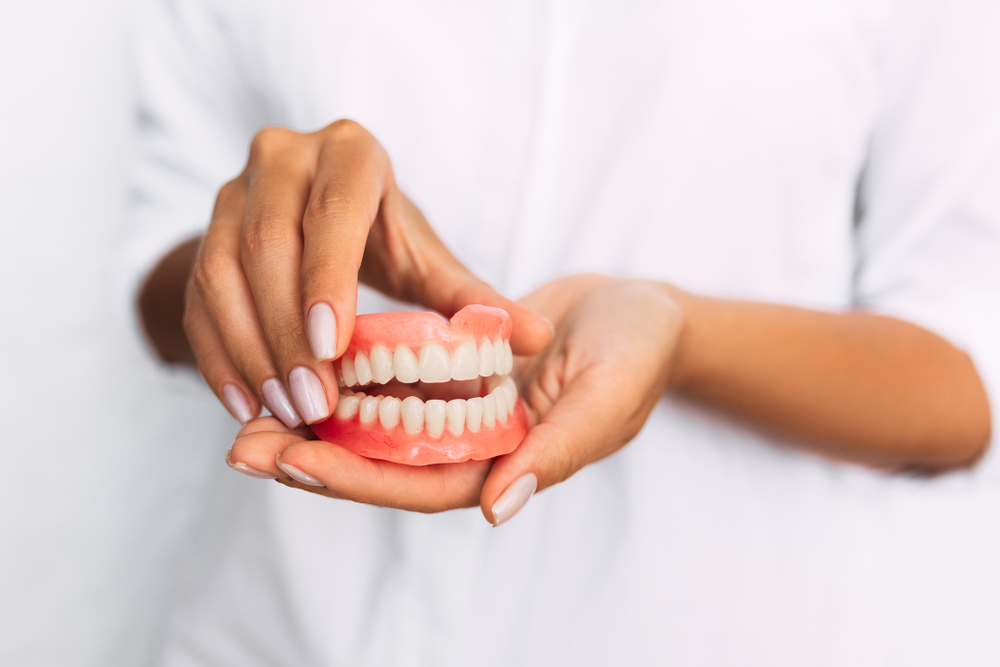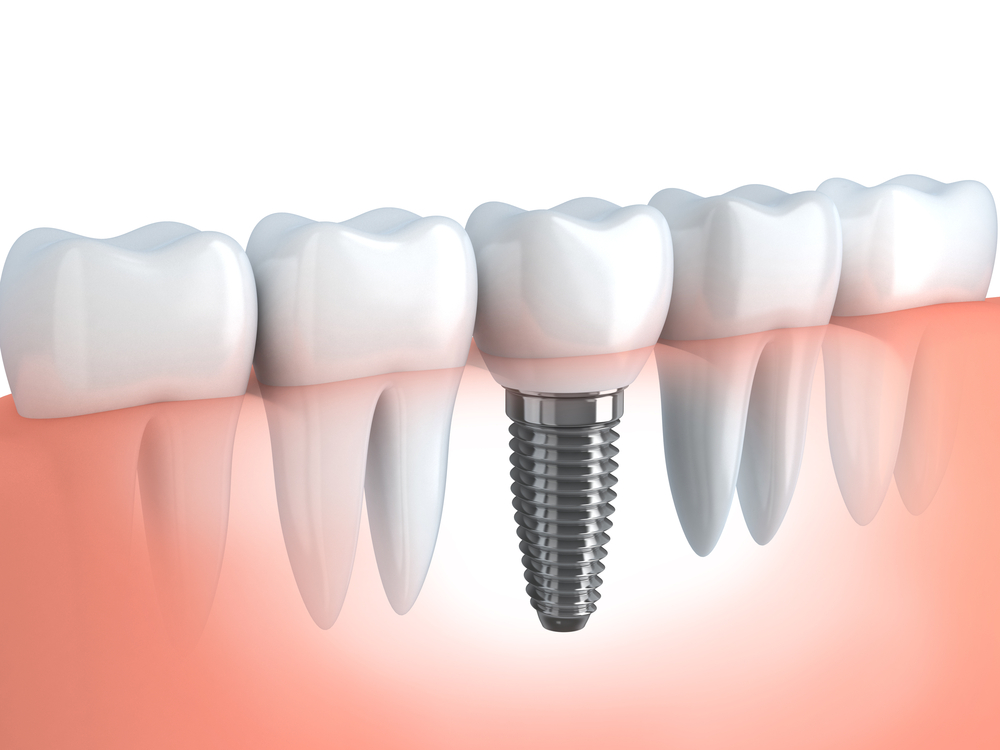More than one third of all Americans will experience tooth loss, with nearly 40 million losing all of their original teeth due to poor oral health, disease, and other systemic issues. As tooth loss becomes more and more widespread with the added sugars and unhealthy foods in our diets, dental technology has been progressing rapidly to be able to address the problem of missing teeth.
The two main solutions are dentures and dental implants. But, the question many people want to know is which is better, dentures or dental implants? How do dental implants and dentures compare? Is one better than the other or is it situational?

Dentures
VS.
Dental Implants

What are Dentures?
Dentures are artificial teeth anchored inot an acrylic base set of fake gums that replace either the upper or lower set of teeth, or if necessary both the top andbottom sets. Dentures sit in your mouth through a natural suction and depending on your jaw and gum condition, with the help of a denture adhesive. While modern dentures have come a long way, they do still sometimes lose their fit and need to be replaced every few years.
What are Dental Implants?
Dental implants are screw-shaped titanium posts that are inserted into your jawbone to replicate the roots of your lost teeth. These posts stimulate your jawbone, preventing bone loss that typically comes with tooth loss. In the case of someone missing all of their teeth, an average of four to six dental implants can be strategically placed throughout the jaw to hold a permanent denture in place, restoring the patient’s biting force. Implants are designed to last for several decades, possibly even the rest of a patient’s life, and they never need to be refitted.
Why are Dental Implants Better Than Dentures?
There are many reasons why implants are a better solution to tooth loss in the long run, such as:
- Implants preserve your jawbone, which helps to maintain your facial structure and keep you looking young.
- Because implants are firmly rooted in your jawbone, they wind up feeling exactly like your natural teeth. Dentures can sometimes feel a bit fake or unnatural.
- With implants, you can eat pretty much whatever you want, whereas with dentures, certain foods, such as chewing gum and sticky candies, should be avoided.
- Dental implants can last for decades, while dentures need to be relined or replaced every few years.
- It’s easier to clean implants: simply brush and floss as normal. Dentures require extra effort when cleaning.
What We Mean By Dental Implants
Dental implants are a modern solution for missing teeth and are becoming increasingly popular due to their durability and functionality. An implant is a titanium post that is surgically inserted into the jawbone, where it serves as an anchor for a crown, bridge, or denture.
Pros of Dental Implants:
- Durability: Implants are designed to be a long-lasting solution and can potentially last a lifetime with proper care.
- Bone Preservation: Implants stimulate the jawbone, preventing bone loss and maintaining facial structure.
- Improved Functionality: Implants feel and function like natural teeth, offering more stability than dentures, which allows for better chewing and speaking.
Cons of Dental Implants:
- Higher Cost: The initial cost of dental implants is higher than dentures, although they may be more cost-effective in the long run due to their durability.
- Surgical Procedure: The process of getting implants involves surgery and a healing period during which the implants integrate with the jawbone.
- Time-Consuming: The entire process from start to finish can take several months.
Comparing Dentures and Dental Implants
1. Comfort and Convenience
While dentures are improving in comfort and aesthetics, they still do not offer the same level of comfort as dental implants. Implants are fixed in the mouth and do not require removal for cleaning, providing a more convenient and natural experience.
2. Aesthetic and Functional Outcomes
Dental implants provide a more natural look and feel compared to dentures. They are custom-designed to match your natural teeth and restore full functionality, which means you can eat, speak, and smile confidently without worrying about your teeth slipping or falling out.
3. Long-Term Oral Health
Dental implants contribute positively to long-term oral health. They help preserve the jawbone and reduce the risk of bone loss, whereas dentures may lead to bone deterioration over time if not fitted correctly.
Making the Right Choice
Choosing between dentures and dental implants depends largely on individual needs, medical history, budget, and lifestyle. For some, the non-invasive nature and lower initial cost of dentures make them the right choice. For others, the durability, functionality, and bone-preserving qualities of dental implants make them worth the investment.
At Pickett Family Dental, we are committed to providing personalized care to help you make the best decision for your dental health. We offer comprehensive consultations and state-of-the-art treatment options to ensure that whatever your choice, it fits your needs, expectations, and lifestyle.
If you’re considering dentures or dental implants, we invite you to schedule an appointment at our Keller, TX, office. Our team is ready to help you achieve a healthy, beautiful smile with the comfort and confidence you deserve.



